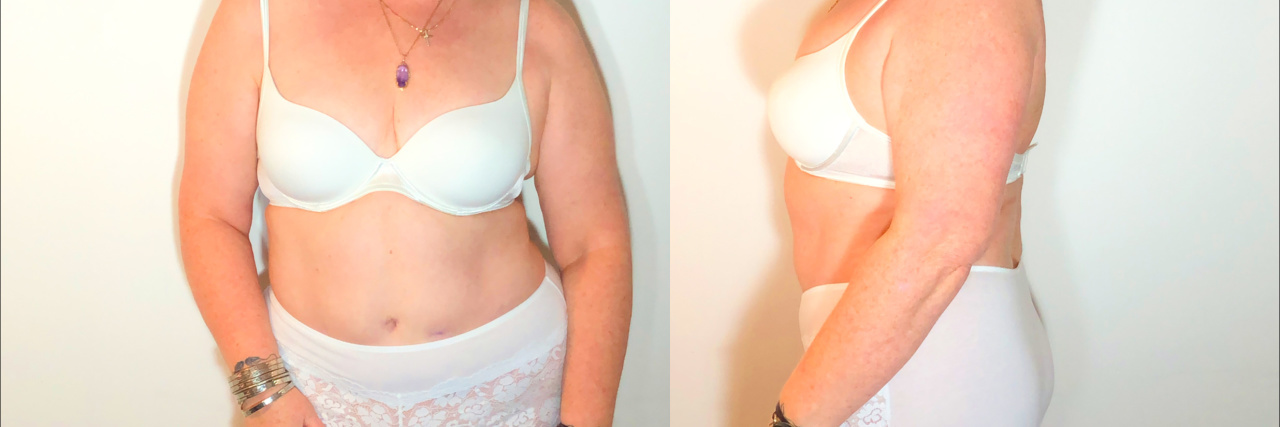Today I watched the film Embrace again. It should be compulsory viewing and reminded me that if I can’t love the body I’m in right now, I won’t love the body I dream of having.
The Perfect Body is a Perfect Lie
Learning to love your body as is, right now, at any size, is not an excuse to indulge in eating disorder behaviors. It’s about loving your body as it is, treating it with respect and learning to nourish and move your body for health and wellbeing, not for appearance or to please someone else.
I’ve dipped my finger in all the eating disorder pies and I confess, binge eating disorder feels like it comes with so much shame involved. For those of us with disordered thinking, anorexia might seem desirable — demonstrating self-control, persistence and strength of character. When it is in fact, a different brand of eating disorder. And they’re all dangerous. It takes enormous amounts of strength, energy and persistence to maintain any eating disorder — binge eating included.
While the body positivity movement has become popular on social media, it’s yet to make its way into mainstream media. Our billboards, television screens and magazines are still all filled to the brim with unnaturally slim, extremely tall women, many of whom also feel uncomfortable in their own skin. And all of whom are photoshopped to within an inch of their life.
Who Decided That Tall, Skinny Waifs are the Embodiment of Beauty?
There are indigenous cultures around the world where curvy, larger women are the embodiment of beauty because they represent health, wealth and happiness. A woman’s appearance still shouldn’t equate acceptability, but skinny = happy is a western construct.
Wouldn’t it be a wonderful utopia if women and men were judged on their curiosity, compassion and contributions, instead of attributes that are largely founded in genetics, not character? I’d rather be surrounded by kindness than thinness and I don’t care how other people look. Do you? Yet my own disordered thinking precludes me from applying the same standard to myself.
There are people so disgusted with their own appearance they won’t go swimming with their children. Or hiking. Or have sex with their partner. Lives consumed with fear of judgment. A fear we’ve learned through our nearest and dearest, random comments from acquaintances, colleagues and strangers, and a media saturation that even the most astute of us cannot help but see.
We don’t see ourselves reflected in the glossy pages of a magazine. We see an impossible standard created by advertising agencies and a multitude of industries: fashion, weight loss, pharmaceutical, cosmetic surgery and beauty. The creation of non-existent problems for corporate greed. Yet here we are — so many of us caught up in a web of lies, damaging our mental and physical health for the illusion of an irrelevant construct.
Here are some (American) statistics for those into numbers — courtesy of the Body Image Center.
- 50 percent of women engage in unhealthy behaviors to control weight
- 70 percent of women aged 18-30 don’t like their body
- 43 percent of men are dissatisfied with their bodies
- 81 percent of ten-year-olds are afraid of being fat
- 30 million people will experience an eating disorder in their lifetime
- 89 percent of girls have dieted by age 17
- The death rate for women with eating disorders is 12 times higher than women of similar ages
- 1000 women die each year from eating disorder complications: malnutrition, heart attack and suicide
And here’s a statistic none of us want to hear: 95 percent of diets fail.
I’m Getting Cranky Now
I’ve been caught in a web of self-hatred since before I toddled on wobbly little legs. My body isn’t acceptable and 50 plus years of rejecting myself is not easily transformed. Body acceptance doesn’t mean eating badly and sinking into the couch for the foreseeable future. It’s about nourishing your body, moving your body, staying healthy and accepting the size you are.
It’s easy to mouth on about the importance of loving ourselves at any size — with all the lumps and bumps and skin imperfections, scars and wrinkles and cellulite and crooked, uneven bits. All the things so many of us are concerned about. I don’t want to be consumed by a shallow obsession with how I look, so I put on my big girl pants (literally) and took photos of myself in underwear. (I didn’t have the courage to go completely nude). Initially, I wanted to wait until I’d lost weight — I’m the heaviest I’ve been for a long time. But then that defeats my whole argument about, “as is right now.”
I spent a lot of time running back and forth to my iPhone to press the 10-second delay on the button that snaps a photo. And now you can see the result. I’ve ummed and ahhed for many days about using these photos. I don’t even want to show them to my husband. But it’s hard to mouth on about the importance of body image acceptance without putting my money where my mouth is.
So here we are. I have no doubt some people will look at the photos and be horrified. Others will think it’s fine. I have no control over other people’s reactions. All I can do is continue to take steps towards healing my disordered thinking and behaviors. And body image is a core issue in my eating disorder.
Image via contributor


